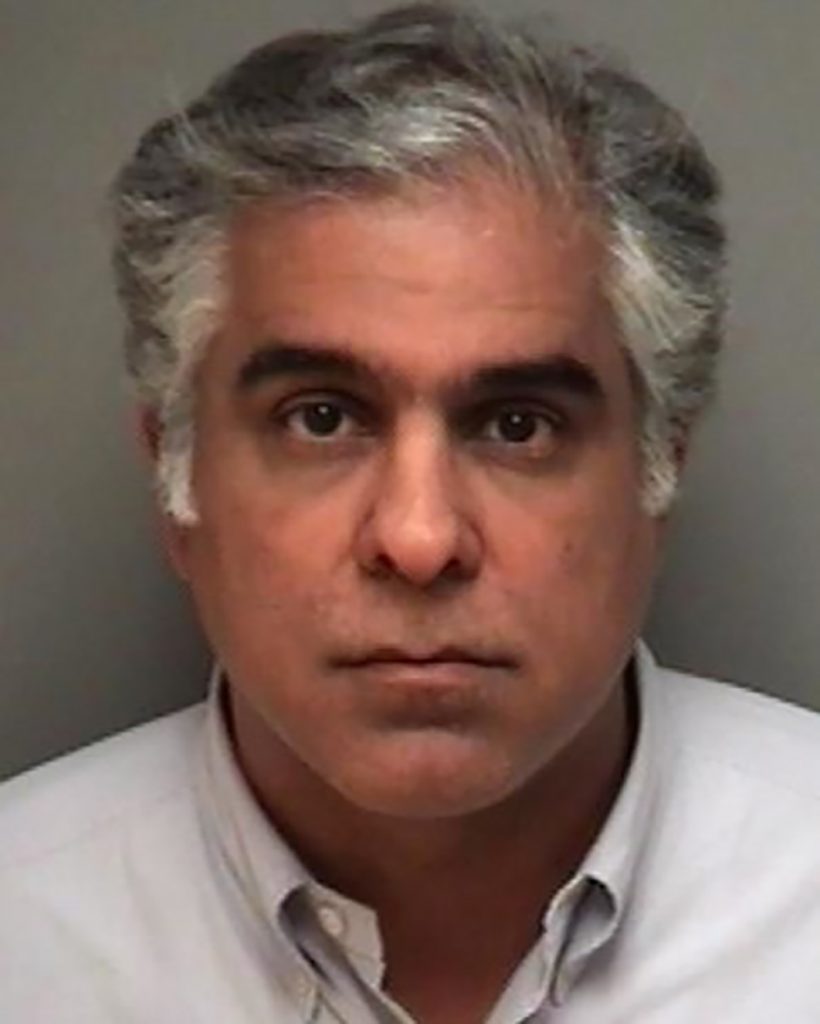Fogel FOIA response from city
How much has the City of Charlottesville paid out in settlements for claims of police misconduct? That’s what attorney Jeff Fogel hoped to learn when he filed a FOIA request on behalf of the People’s Coalition two weeks ago, asking for any responsive records for the past two years. The city’s response to the request: dozens of pages of emails between officials and attorneys, with almost all of the content redacted.
“I don’t know anything more than I knew before,” says Fogel, who has now filed a second FOIA request with the city, expanding the information he’s seeking to include settlements for police misconduct paid on behalf of the city between 2017 and 2019.
Like most Virginia municipalities, Charlottesville is insured by the Virginia Risk Sharing Association, which pays out settlements from a pool of funds.
Fogel says city representatives have previously told him they don’t know how much settlement money has been paid as a result of claims of police misconduct. He suggests that ignorance represents a deliberate effort by city officials to avoid having to disclose the information through FOIA.
City attorney Lisa Robertson did not respond to C-VILLE Weekly’s request for comment.
The city’s response to Fogel’s FOIA about police misconduct settlements does shed light on another legal action against the city: a free speech lawsuit filed by former city manager Tarron Richardson, who alleged he was wrongfully terminated in 2020, and publicly disparaged by members of City Council in violation of a nondisparagement agreement. Richardson eventually dropped the lawsuit, and no information about any settlement has ever been made public. The documents in the city’s response to Fogel’s FOIA request include multiple emails identified in the subject line as “settlement negotiations” in Richardson’s case.
Fogel says if his latest FOIA request results in no information about settlements in police misconduct cases, he plans to file suit against the city seeking the information.
World of pain
An Albemarle County pain doctor charged with sexually assaulting female patients between 2011 and 2017 has been found guilty in the first of multiple scheduled trials. According to The Daily Progress, it took a jury two-and-a-half hours to reach a verdict on Friday, April 1, at the conclusion of Mark Dean’s five-day trial in Albemarle County Circuit Court.

File photo.
The victim, identified in the trial by her initials, accused Dean of inserting his fingers into her vagina without her consent at an appointment in 2017. A second patient testified that she’d had a similar experience during an appointment with Dean. Defense attorneys sought to undermine the victim’s claims by noting she returned to Dean’s office for additional appointments after the assault and didn’t report it for several years. Expert witnesses, however, testified that is not unusual for victims.
Dean will be sentenced on August 31, and faces a minimum of five years to life in prison. His next trial is scheduled for June.
In brief
Boost up
The Food and Drug Administration has approved a second coronavirus booster shot for immunocompromised individuals ages 12 and older, and adults 50 and older. These groups are eligible to get the Pfizer or Moderna shot at least four months after their most recent booster. Appointments can be made on VaccineFinder.org.
Price cut
Senator Tim Kaine has co-sponsored legislation that could drastically reduce the price of insulin across the country. Introduced by Senator Raphael Warnock, the Affordable Insulin Now Act would require both Medicare and private health insurance plans to cap out-of-pocket insulin costs at $35 per month. The cost of the life-saving medication has skyrocketed—diabetics currently spend around $6,000 a year on insulin, according to the Health Care Cost Institute.

Photo: Gage Skidmore
In reverse
Last spring, the University of Richmond’s board of trustees refused to rename campus buildings with white supremacists’ names on them, sparking student and faculty protests. But last week, the swanky private school reversed its controversial decision: It renamed six buildings, including Ryland Hall—named for the school’s first president Reverend Robert Ryland, who enslaved more than two dozen people—and Mitchell-Freeman Hall—partially named for 19th-century trustee Douglas Southall Freeman, who supported eugenics and segregation. In recent years, the University of Virginia has also stripped the names of racists from several academic buildings—but has yet to rename Alderman Library, named for the school’s first president and eugenicist Edwin Alderman.














